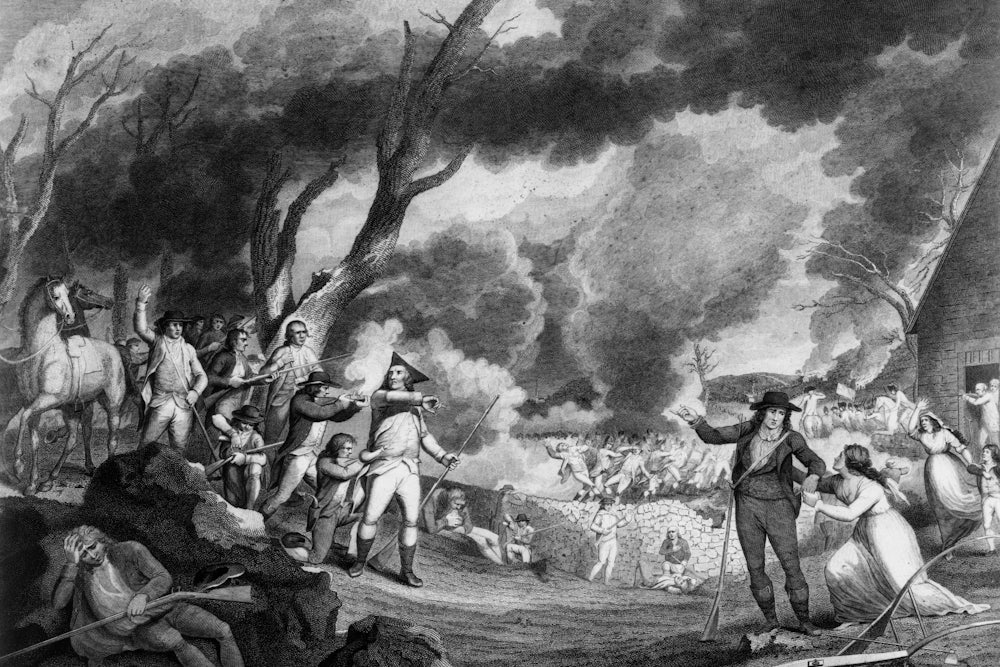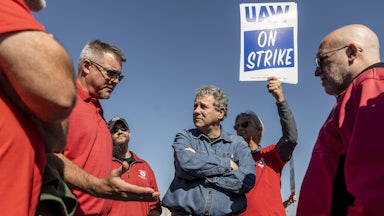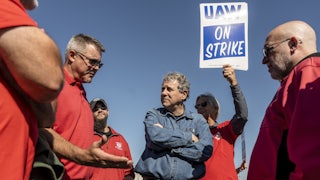“We weren’t there to steal things. We weren’t there to do damage. We were just there to overthrow the government.”—comment of a 56-year-old Michigan woman present at the U.S. Capitol on January 6, 2021
Robert Kagan, historian and resident scholar at the Brookings Institution, is not befuddled by the question of what liberalism is, leastways not liberalism in the context of American political history, past and current. Liberalism, as Kagan writes in his new book, Rebellion: How Antiliberalism Is Tearing America Apart—Again, is exactly the philosophy originated by the British political thinker John Locke (building on previous writings of Thomas Hobbes) and embodied in America’s Declaration of Independence, as well as its Constitution and Bill of Rights. As the opening of the Declaration goes, “We hold these truths to be self-evident, that all men are created equal, that they are endowed by their Creator with certain unalienable Rights, that among them are Life, Liberty, and the pursuit of Happiness.”
Patriotic Americans are so used to those words that, in Kagan’s view, they hardly realize how radical they were at the time of their conception, nor, for that matter, how radical—or maybe nonsensical—they must seem today to an unpatriotic American right-wing that rejects the concepts of equality and liberty and seeks instead to constitute (or, in their view, reconstitute) an America of predominately white people and an all-dominant Christian religion. And a large number of ideologically loyal Americans are apparently unaware of the threat these people—now that they have found an effective charismatic leader in the person of Donald Trump—pose to the liberal values by which they (aware of it or not) live.
American Colonial leaders did not originally set out to discover a radically new philosophy of political freedom or establish a virtually unprecedented form of government, one in which members of a political community ruled themselves rather than being ruled over by a king. For a long period of time, they were content with the purported compact between British subjects and their king that allowed them greater freedom than existed in other countries. But much of the freedom the colonists enjoyed was illusory, derived from the fact that, because of their distance from their homeland, they were treated with “benign neglect” by British authorities. As soon as those authorities began taxing them to finance expeditionary military operations in America and elsewhere—without their consent—they rebelled, rejecting “taxation without representation” and setting out on a trajectory that would lead to a final break with Britain and the creation of an unprecedented Constitution in Philadelphia in 1787.
Tom Paine spoke of America as “begin[ning] the world over again,” but there is always a snake in any Eden, and in the case of the United States that was the existence of Black African slavery on plantations throughout the South. Most of the Founders from north of the Mason-Dixon Line would have preferred to abolish slavery throughout the land, but they did not want to truncate the country into what they imagined would be two relatively weak and vulnerable entities. They therefore countenanced its continued existence, without besmirching the Constitution with that concession. They did accede to Southerners’ demand that their slaves be counted as if they were actual voters in apportioning each state’s representation in Congress (using the infamous “three-fifths of all other Persons” measurement). The Electoral College also helped guarantee them a representation greater than their voting population alone would warrant. Through these provisions, the South hoped to make its “peculiar institution” a permanent one. This hope was unrequited. A bloody Civil War ultimately ensued, following which, during the period known as Reconstruction, an intense but likely predoomed attempt was made to put the South on a new footing of rough racial equality. But after the withdrawal of federal troops in 1877, the South reverted to its old ways, reducing its Black population to virtual peonage and abrogating their voting rights completely. And this was almost exactly how things still stood in that region when the era of intense civil rights activism commenced in the 1950s.
In the area of religion, Kagan identifies the Mayflower Compact as the source of the erroneous belief on the part of many that the United States was founded as a Christian commonwealth. These professed Christians perceive, or rather misperceive, a straight line from the Compact to the Declaration, perhaps misled by Jefferson’s late insertion, at the behest of friends, of the term “Creator” into the text, resulting in the phrase “endowed by their Creator with certain unalienable Rights.” In fact, this phraseology directly contradicts the liberal political philosophy of the Founders in this regard, which, following Locke, held that these unalienable rights preexisted in nature and were not “endowed” by any being. In any case, these same religious agitators reject the liberal principles of human equality and freedom of conscience, and that is what has brought them into the orbit of the crypto-fascist political movement led by Trump.
To understand the full pernicious effect of such misguided Christianity, however, one also has to consider the belligerent reaction of the radical Christian right to the various Supreme Court decisions over the last 70 years expanding citizens’ rights in the arenas of public education, reproductive freedom, same-sex marriage, and prayer in public schools. Kagan stipulates that the Founders created a “rights-protection machine,” and the radical right has manifested its rage against that machine. It is because of Trump’s pledge to put reactionary justices on the Supreme Court—a promise fulfilled—that he has their unwavering support, especially in view of their overturning Roe v. Wade. When that ploy is combined with his clear determination to restore white supremacy (largely through drastically limiting immigration), Trump has a potent case to make to his followers for his reelection. Can American liberalism survive their onslaught?




